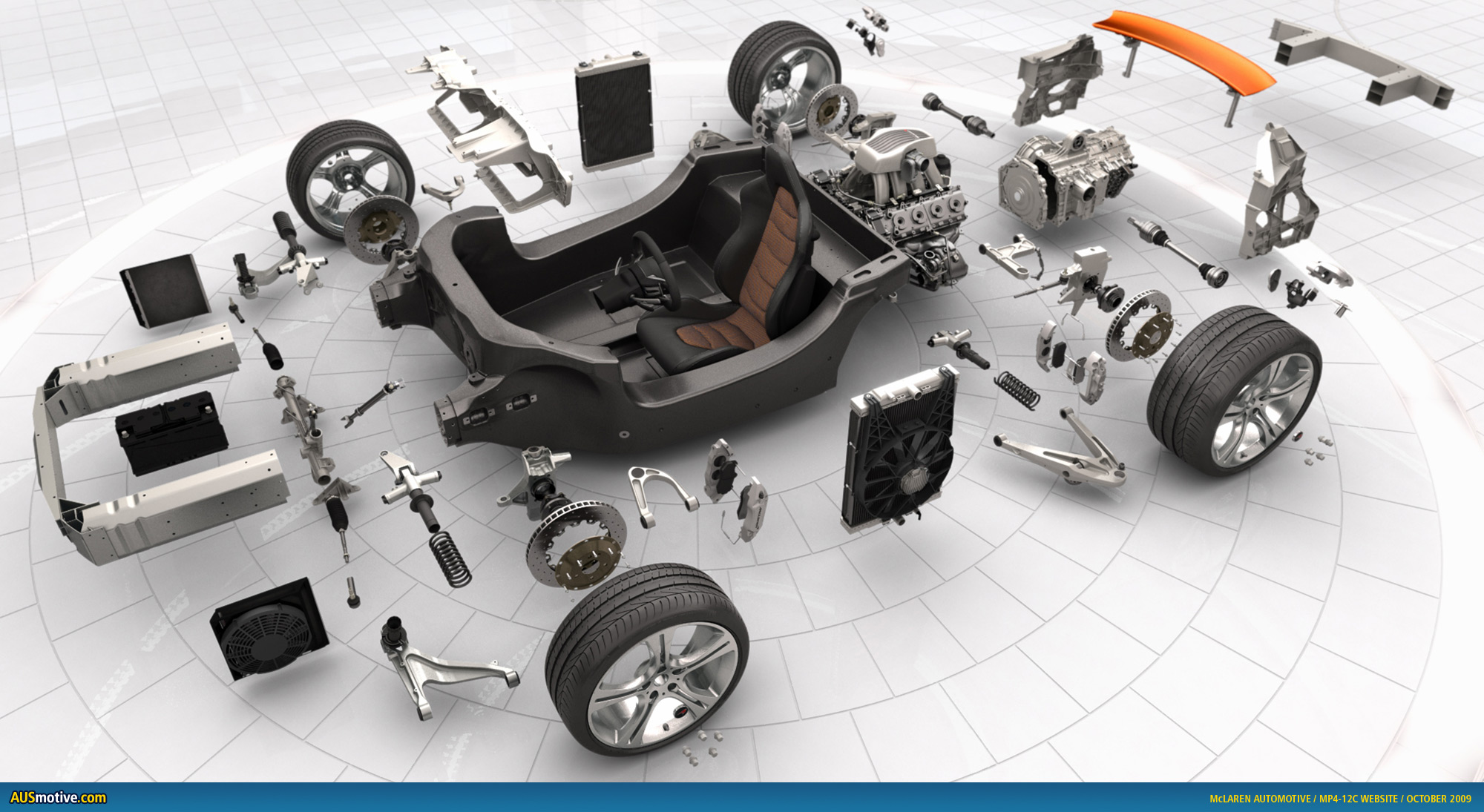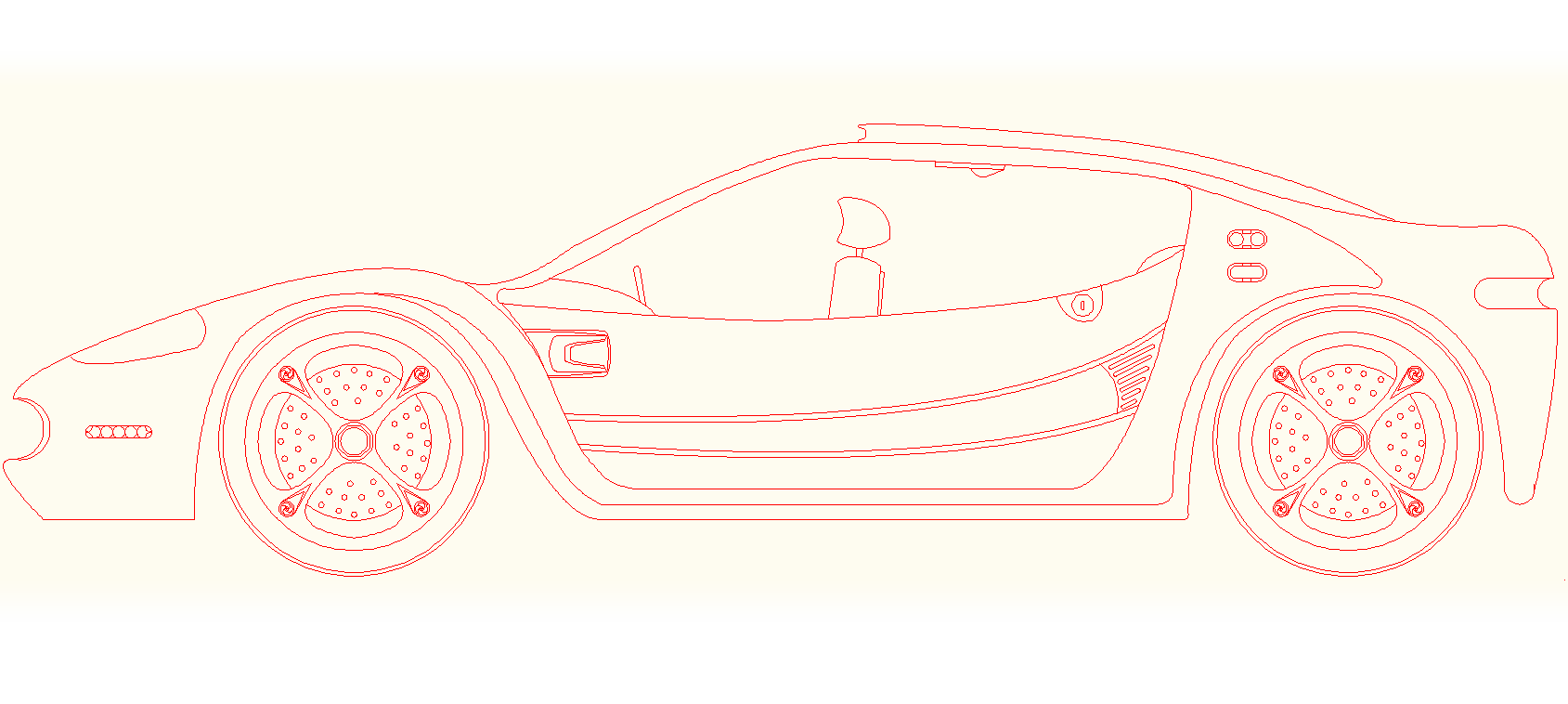| T O P I C R E V I E W |
| wasssup1990 |
Posted - Nov 05 2009 : 07:55:01 AM
Hell yeah! There's brand spanking new Mclaren that will be coming out in 2011. The Mclaren MP4-12C.
I was first introduced to the Mclaren F1 in the 1997 PC game called "Need For Speed II". My main attraction to the car was its astonishing speeds. A Mclaren F1 was pushed to its limits and was recorded doing a top speed of 392 Km/h (off the top of my head).
Now there's a new Mclaren, due in 2011!
http://www.carmagazine.co.uk/News/Search-Results/First-Official-Pictures/McLaren-MP4-12C-2011-the-first-official-story-09-09/
http://www.cartype.com/pages/4355/mclaren_mp4-12c__2011
The different flavours of Mclaren F1. The original being in the front.



The car on the right was recorded doing 406 Km/h (off the top of my head).

The new Mclaren.





|
| 8 L A T E S T R E P L I E S (Newest First) |
| wasssup1990 |
Posted - Nov 15 2009 : 8:21:48 PM
Oh cool I didn't know that.
The Mclaren F1 has been around for some time.
Going by wiki:
Production 19921998
(106 produced)
The rotary is certainly a nice engine IMO primarily because of the reduction of moving parts compared to the conventional cylinder engines. |
| Aaron Cake |
Posted - Nov 15 2009 : 10:34:32 AM
Enough with the grammar-Nazi stuff. It's getting very old and has ceased to be funny.
The specs of the McLaren are quite impressive, but let's make a ridiculous comparison: to the '86 RX-7.
The RX-7 also has:
-Individual coil per cylinder
-variable intake timing (variable intake ports used in '84+, DEI intake introduced in '86, variable intake runners in '89)
-in a rotary, variable port timing is like variable cam timing in a piston engine
-primary and secondary injection, where primary injectors are used at light load and idle close to the ports to give economy and throttle response, and secondary injectors are brought in up in the intake to provide higher load fueling
-nitrided irons to reduce wear, porous chrome plated housings to reduce wear, electron beam hardened rotor apexes, electron beam hardened seals
I think it's a neat comparison to look at what Mazda was doing 20+ years ago with the rotary that other manufacturers are just starting to look into (domestics were still running distributors and carbs when Mazda was making RX-7s with fuel injection and coil-near-plug). |
| wasssup1990 |
Posted - Nov 12 2009 : 12:21:29 AM
Oh god, give it a rest will you! |
| Yerboogieman |
Posted - Nov 11 2009 : 9:47:11 PM
quote:
Originally posted by Aaron Cake
When things are modified, all bets are off. The only reason I can even make this comparison (which would be stupid otherwise) is because my RX-7 is highly modified. 
However it is going nowhere right now, because I shredded 1st, 2nd, 3rd, 5th and reverse on Sunday. Blew apart the input shaft and cluster shaft gears.
Looking at the specs of the F1, it is lighter then I thought. So it's lighter then me by about 200 LBs, but with similar power. Sadly, that means it's probably faster. :)
I've had the RX-7 damn near 200 MPH in controlled conditions, but it is gearing which is the limiting factor.
You mean Than. |
| wasssup1990 |
Posted - Nov 10 2009 : 8:58:21 PM
Oh that's interesting to know.
Going by what I read on wiki, they said to get higher speeds they needed to turn off the rev limiter at 7500RPM. Now I am not really into cars as much as you are Aaron, but I think the BMW engine that is sitting in the gold-lined engine bay is a 12 cylinder without turbos or superchargers.
Going by wiki:
"Gordon Murray insisted that the engine for this car be naturally aspirated to increase reliability and driver control. Turbochargers and superchargers increase power but they increase complexity and can decrease reliability as well as introducing an additional aspect of latency and loss of feedback, the ability of the driver to maintain maximum control of the engine is thus decreased."
The engine in this thing is truely 'alive'. It produces raw brute power and is computer controled to keep the engine running perfectly. I believe the computer is in the front hatch of the car.
Some more interesting info.
"
The cam carriers, covers, oil sump, dry sump, and housings for the camshaft control are made of magnesium castings. The intake control features twelve individual butterfly valves and the exhaust system has four Inconel catalysts with individual Lambda-Sond controls. The camshafts are continuously variable for increased performance, using a system very closely based on BMW's VANOS variable timing system for the BMW M3;[9] it is a hydraulically-actuated phasing mechanism which retards the inlet cam relative to the exhaust cam at low revs, which reduces the valve overlap and provides for increased idle stability and increased low-speed torque. At higher RPM the valve overlap is increased by computer control to 42 degrees (compare 25 degrees on the M3)[9] for increased airflow into the cylinders and thus increased performance.
To allow the fuel to atomise fully the engine uses two Lucas injectors per cylinder, with the first injector located close to the inlet valve operating at low engine RPM while the second is located higher up the inlet tract operating at higher RPM. The dynamic transition between the two devices is controlled by the engine computer.[9]
Each cylinder has its own miniature ignition coil. The closed-loop fuel injection is sequential. The engine has no knock sensor as the predicted combustion conditions would not cause this to be a problem. The pistons are forged in aluminium.
Every cylinder bore has a nikasil coating giving it a high degree of wear resistance.[9]
"
I thought you might find this interesting to know. |
| Aaron Cake |
Posted - Nov 10 2009 : 10:05:48 AM
When things are modified, all bets are off. The only reason I can even make this comparison (which would be stupid otherwise) is because my RX-7 is highly modified. 
However it is going nowhere right now, because I shredded 1st, 2nd, 3rd, 5th and reverse on Sunday. Blew apart the input shaft and cluster shaft gears.
Looking at the specs of the F1, it is lighter then I thought. So it's lighter then me by about 200 LBs, but with similar power. Sadly, that means it's probably faster. :)
I've had the RX-7 damn near 200 MPH in controlled conditions, but it is gearing which is the limiting factor. |
| wasssup1990 |
Posted - Nov 10 2009 : 12:38:00 AM
A stock Mclaren F1 would do speeds that you would expect for a high-performance sports car, but when you tweak the hardware you can really get to high speeds. I was almost right on my guess of 392Km/h. Going by wiki the Mclaren F1 can get up to 243 mph (391 km/h). So how fast can your RX-7 go Aaron?
http://en.wikipedia.org/wiki/McLaren_F1
Oh cool I found the video too.
http://www.youtube.com/watch?v=vGBI_kGwqAk
Ah this is interesting. Back when I was in High School, Year 10 or 11, four or five years ago I needed to do a 2D CAD design of a car. No car in particular. So I based my design off the Mclaren F1, using some pictures I found off the net.
This is what it turned out to look like.
Download Attachment:  Johnnys_Car.png Johnnys_Car.png
32.12 KB
 |
| Aaron Cake |
Posted - Nov 08 2009 : 11:20:45 AM
Very nice! I've never found the McLaren astetically beautiful. It is only beautiful from the fact that it is purpose designed and the perfect shape for what it does.
Something scary is that looking at the specs they quote, my RX-7 is faster. The McLaren probably outhandles it, but in every other way my RX-7 is faster. |
|
|

